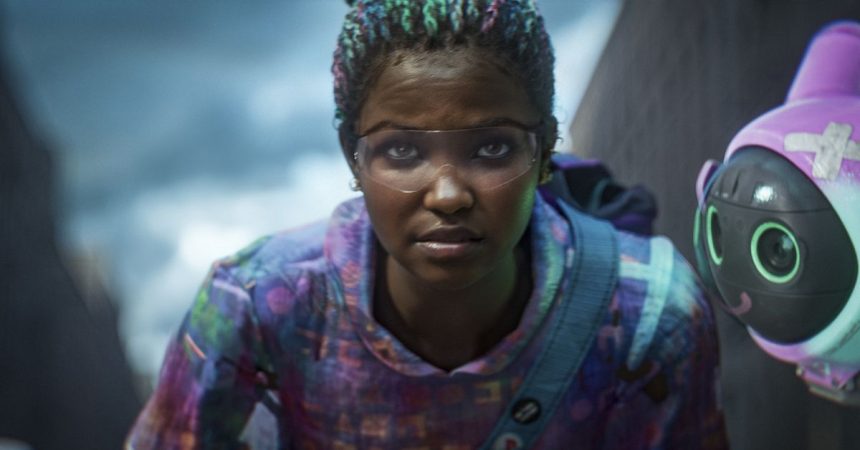Secret Level, a new animated anthology series now streaming on Prime Video, arrives with a mixed bag of intrigue and promotional baggage. Developed by the same team responsible for Netflix’s Love, Death & Robots, the show boasts fifteen episodes inspired by a diverse array of video game franchises, including iconic titles like Warhammer 40,000, Dungeons & Dragons, and Mega Man, and even features a segment based on the recently discontinued Sony shooter, Concord. While the pedigree of the production team and the allure of beloved gaming properties promise an engaging experience, Secret Level struggles to maintain a clear distinction between entertainment and advertisement, a tension that permeates several episodes and culminates in a particularly striking, and arguably controversial, example: a darkly reimagined Pac-Man episode revealed to be a thinly veiled promotion for an upcoming game. This blurring of lines between creative storytelling and marketing raises questions about the show’s artistic integrity and its potential to resonate with audiences beyond a purely promotional capacity.
The individual episodes of Secret Level exhibit a wide spectrum of animation styles, narrative approaches, and tonal variations, reflecting the diverse source material from which they draw inspiration. From the grim, gothic futurism of Warhammer 40,000 to the high-fantasy realms of Dungeons & Dragons, the show attempts to capture the essence of each franchise while offering fresh perspectives on familiar characters and universes. Some episodes lean towards action-packed adventures, showcasing thrilling battles and epic conflicts, while others delve into more introspective narratives exploring themes of morality, loss, and the human condition. This stylistic and thematic variety offers something for a broad audience, but it also contributes to a sense of unevenness throughout the series, as some episodes inevitably resonate more strongly than others.
Despite the potential for captivating storytelling offered by the rich source material, Secret Level often falters in its execution, struggling to balance its creative ambitions with its apparent promotional agenda. The most glaring example of this conflict is the aforementioned Pac-Man episode, a stark departure from the lighthearted, maze-chasing gameplay of the original arcade classic. Reimagined as a gritty, blood-soaked tale of survival, this particular segment features a darker, more brooding version of the iconic yellow protagonist navigating a post-apocalyptic wasteland, battling grotesque monsters in a desperate fight for existence. While visually striking and undeniably captivating, the episode’s eventual reveal as a teaser for a new Pac-Man game undermines its artistic merit, transforming a potentially compelling short film into a glorified advertisement.
This promotional undercurrent runs through several other episodes, subtly influencing narrative choices and character development. While not as overt as the Pac-Man example, the inclusion of specific game mechanics, character abilities, and plot elements often feels more like a product demonstration than an organic storytelling device. This constant awareness of the underlying promotional intent detracts from the immersive experience, preventing viewers from fully engaging with the narratives and characters presented on screen. The line between homage and advertisement blurs, leaving the audience questioning the authenticity of the creative vision behind the project.
The involvement of the Love, Death & Robots team undoubtedly adds a layer of prestige and anticipation to Secret Level. Known for its visually stunning animation, mature storytelling, and experimental approach to genre, the team’s previous work established a high bar for quality and innovation in the animated anthology format. However, Secret Level struggles to live up to the same standards, often feeling like a pale imitation of its predecessor. While some episodes showcase impressive visuals and compelling action sequences, the overall execution lacks the same level of polish and depth that characterized Love, Death & Robots. The reliance on pre-existing intellectual property also limits the creative freedom of the writers and animators, preventing the show from exploring truly original and thought-provoking themes.
Ultimately, Secret Level represents a missed opportunity to explore the vast creative potential of video game narratives. While the concept of an animated anthology series based on beloved gaming franchises holds undeniable appeal, the show’s execution is hampered by its apparent prioritization of marketing over storytelling. The uneven quality of the episodes, the often heavy-handed promotional elements, and the lack of truly original storytelling prevent Secret Level from reaching the heights of its inspiration, Love, Death & Robots. While individual episodes may offer fleeting moments of entertainment, the overall experience is marred by a sense of missed potential, leaving viewers with the impression of a glorified advertisement reel rather than a truly captivating and artistically fulfilling anthology series. The question remains whether future iterations of such projects will learn from the shortcomings of Secret Level and prioritize storytelling over product placement, allowing the rich narratives and compelling characters of the gaming world to truly shine on screen.



